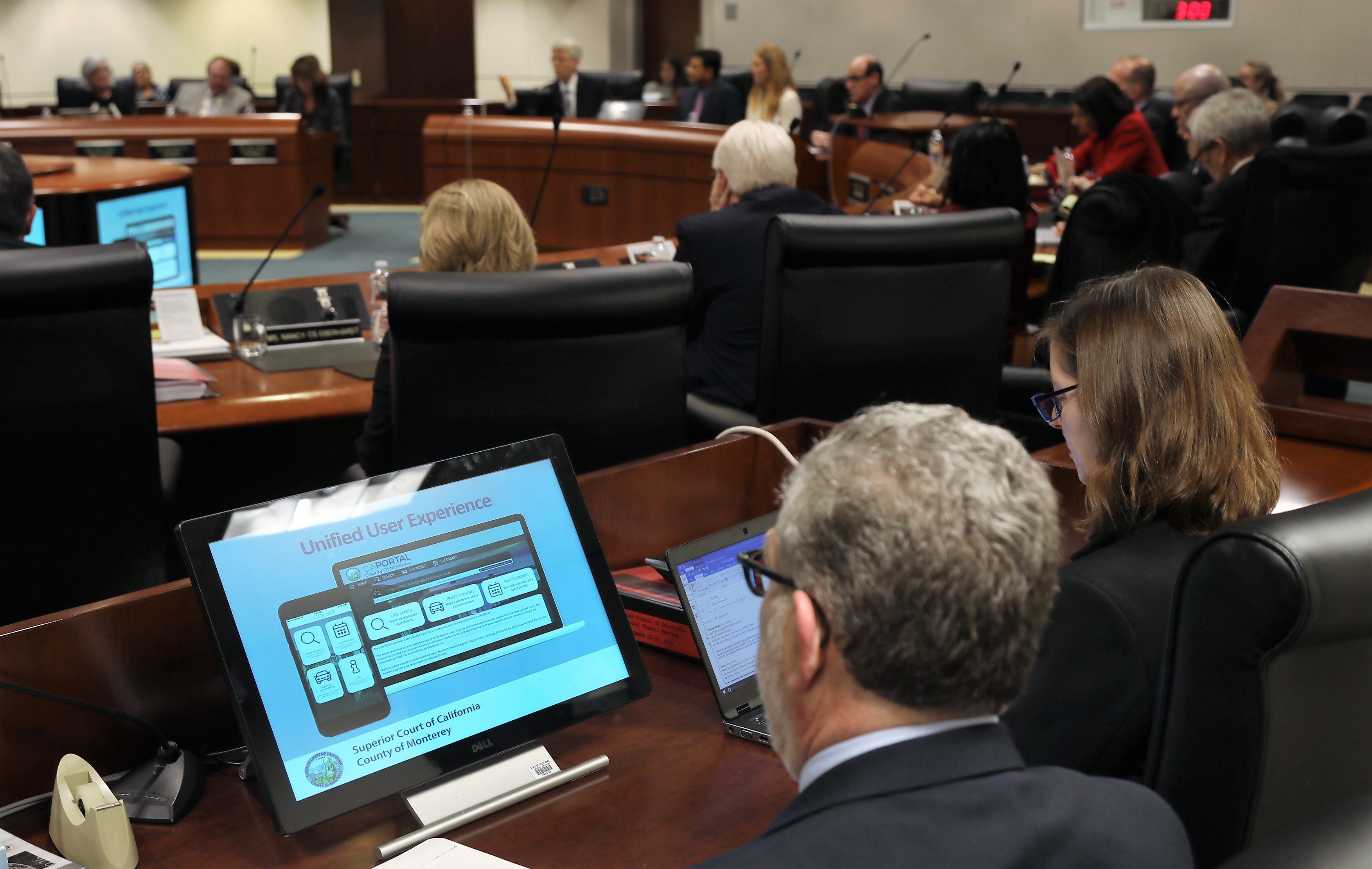Council Adopts New Rules on Appointed Counsel in Death Penalty Review Cases
SAN FRANCISCO—The Judicial Council at its November 29–30 meeting approved changes to rules of court that govern appointed counsel in death penalty appeals and habeas corpus proceedings.
One revision modifies qualification requirements for appointed attorneys in habeas corpus proceedings, including the number of years practicing law, legal and case experience, and training. The second revision creates new rules related to the vetting and appointment of attorneys for death penalty–related habeas corpus proceedings heard in the superior courts.
“One of our goals is to achieve competent representation without unduly reducing the number of attorneys willing and able to handle these complex cases,” said Justice Dennis M. Perluss, chair of the working group appointed earlier this year to implement aspects of Prop. 66 that impact court functions. “Another goal is to support trial courts now tasked with appointing death penalty counsel in habeas corpus proceedings. These are new procedures, and we anticipate making improvements and refinements as we move forward.” Watch
Other items on the council meeting agenda include:
Handling Traffic Cases Online: The council added three more trial courts (El Dorado, Fresno, and Monterey) to a pilot project that tests ways to take traffic court online, including looking up traffic citations, making ability-to-pay determinations for traffic fines and fees, and resolving cases. The council will analyze the results of the online traffic services to gauge their effectiveness and replicability in other courts.
Monterey Court’s Online Services: The council heard from court leaders in Monterey County about its new mobile app for looking up cases, searching calendars, and making traffic payments via smart phones. More than 200 court users downloaded the app in its first month. The court plans to expand the app’s functions to include authentication, chat-bot, and other online services. The app is one of 50 programs funded through the Court Innovations Grant Program, which supports court innovations and efficiencies replicable statewide. Watch
Strategic Plan for Court Technology: The council adopted an update to the judicial branch’s Strategic Plan for Technology. The plan establishes a roadmap for technology solutions that will enhance electronic access to court services and information. Plans for the “digital court,” will not only allow courts to operate more efficiently but will significantly broaden access to the courts for litigants, lawyers, justice partners, and the public. Watch
Legislative Priorities for 2019: The council approved its legislative priorities for the upcoming year. Priorities focus on investment in the judicial branch, implementing efficiencies in the courts, and securing critically needed judgeships. Additional priorities include implementing recommendations of the Commission on the Future of California’s Court System and authorization to dispose of unused courthouses at fair market value. Watch
An archived videocast of the entire meeting broken out by topic will be available on the council’s meeting information webpage.


